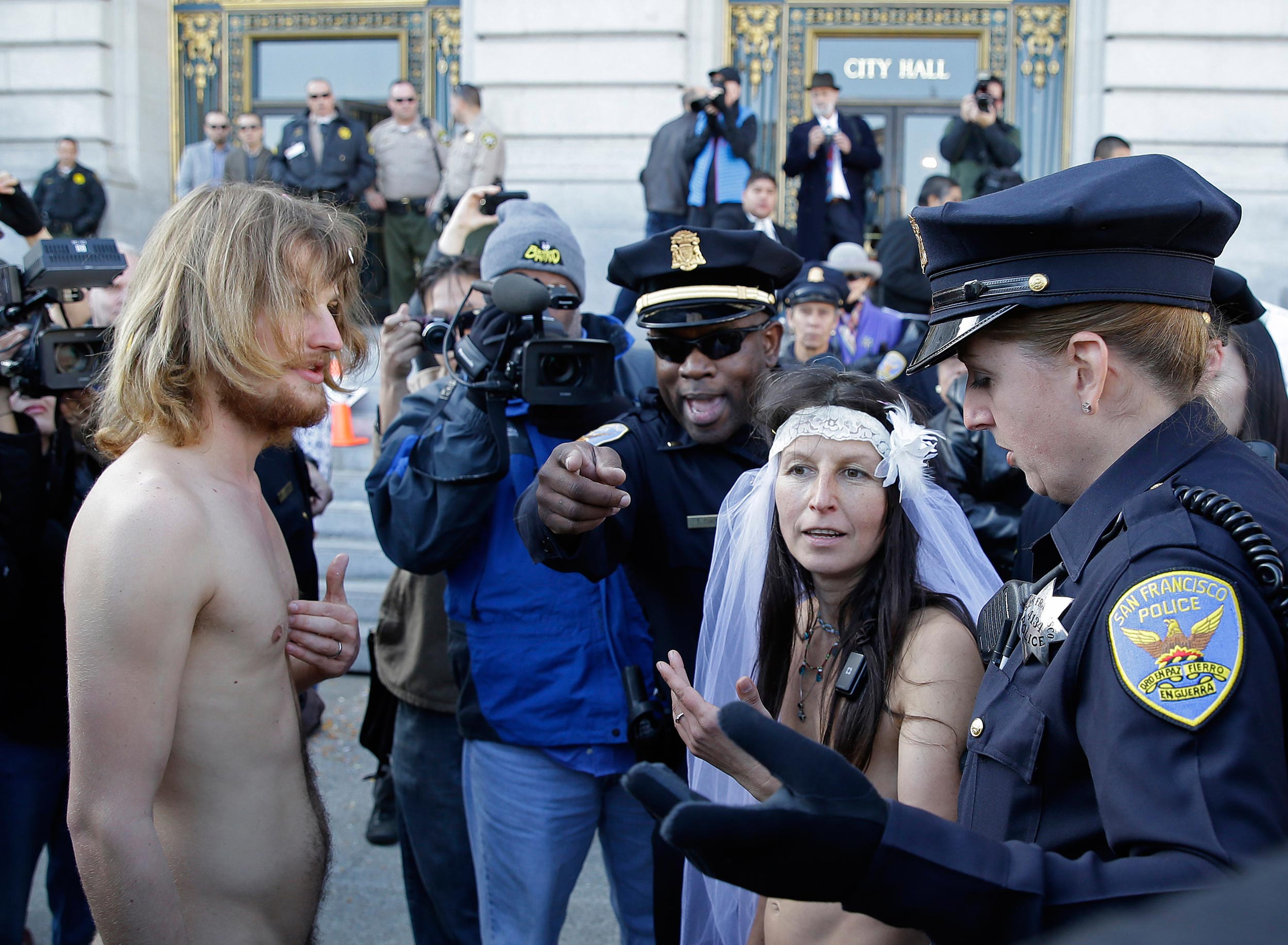
Recently the Pioneer Log published an article about the growing concern from the Associated Students of Lewis & Clark and the Reed College Honor Council over the Reed Kommunal Shit Kollecktiv tradition of streaking on the LC campus, along with the LC “Naked Mile” run.
The article states, “With the growing acknowledgement of sexual harassment on college campuses, and school policy allowing nudity on campus, problems are bound to arise.” While it is important to address the very serious issue of sexual harassment, it is also important to distinguish the differences between celebration of the human body’s natural form and aggressive, sexually-charged public nudity.
The basis of nudist culture derives from the fact that a person is born naked, without any sexual implications. Somewhere along the line of human development the taboo and discomfort regarding the human body arises, which the nudist culture wishes to deconstruct. People should be able to be naked and not ashamed of their own body.
Nudity is a representation of the human body unobstructed by any modification, and punishment for doing so is shaming the natural form one exists in. This is by no means a clothing rejection, as it serves practical purposes, but denying the naked human body is denying the natural human form.
In regards to the opposing argument of the bystander not being able to consent to the nudity, it should be noted that “consent” is a word charged with a sexual connotation. This instant-sexualization of the human body works as a reaffirmation of the tired patriarchal structure. Advertisements (beauty industry, alcohol, etc.) that work to objectify the human body often do so by appealing to sexuality. By automatically assuming that being naked is a sexual act reinforces the objectification of bodies created by these advertisement industries. Too often the human body is immediately identified as sexual, and the possibility that someone can be naked without having some sort of sexual intent is ignored.
Anti-nudity is undoubtedly growing. In 2012 a ban of public nudity was passed in San Francisco, a city that for a long time turned a blind eye to nonsexual public nudity. This law presumably passed due to people’s discomfort with the nude form. I challenge people to question their discomfort, and discuss this issue instead of just brushing it off. Ask yourself, “What causes me to be uncomfortable with nudity?” instead of immediately shielding your eyes to natural form of the human body.
Subscribe to the Mossy Log Newsletter
Stay up to date with the goings-on at Lewis & Clark! Get the top stories or your favorite section delivered to your inbox whenever we release a new issue.

Leave a Reply